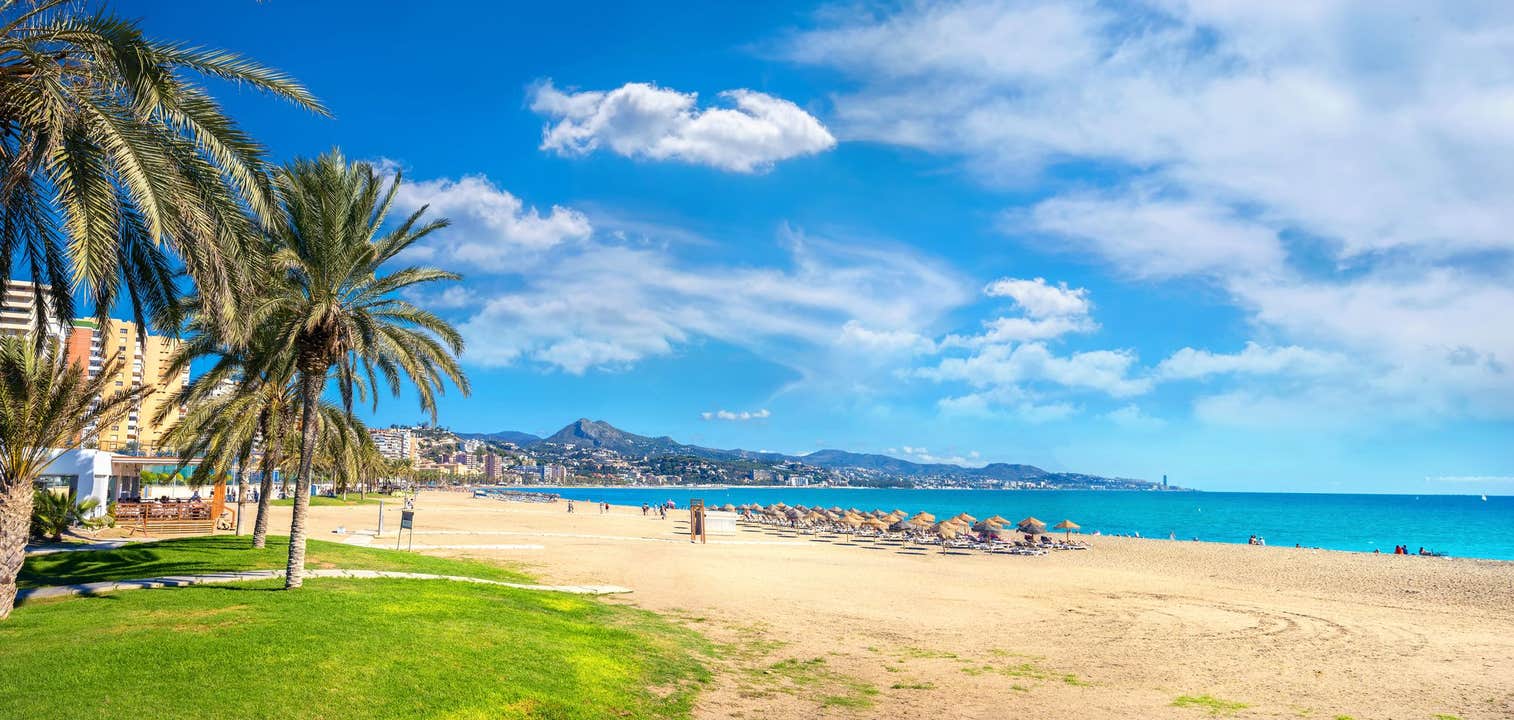
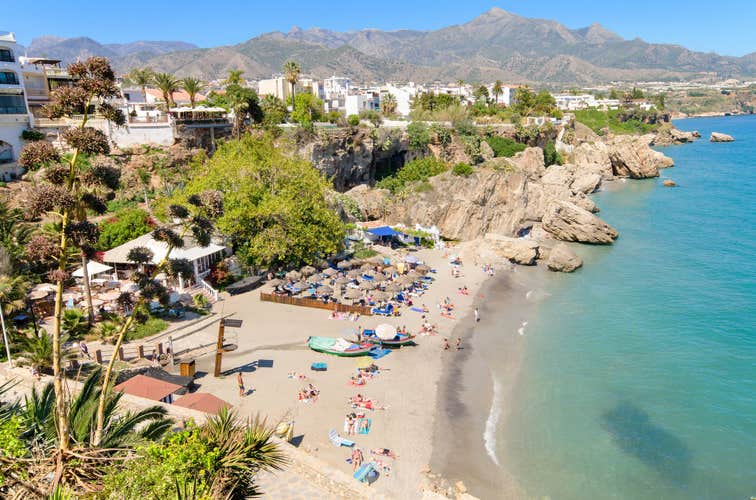
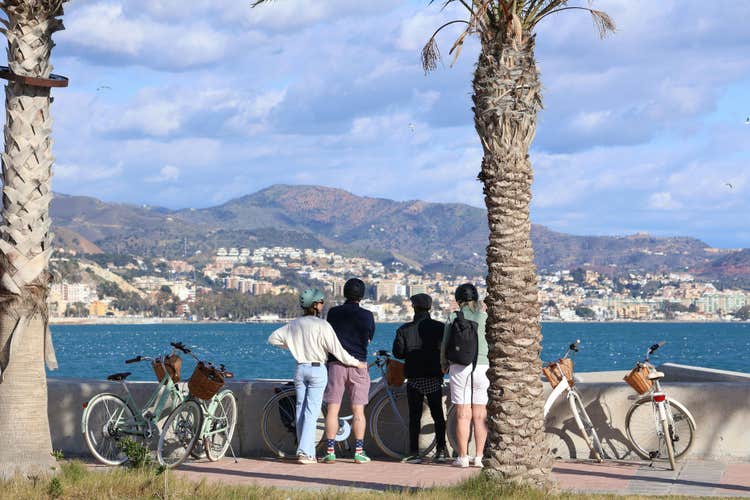

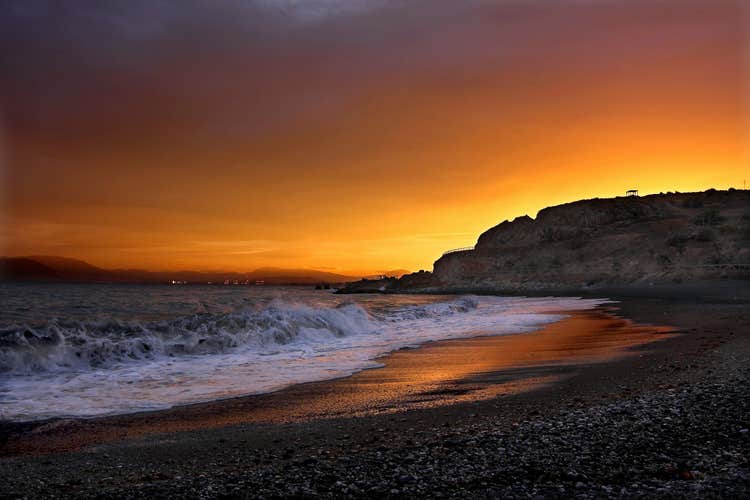
Unlock the secret to the best time to visit Malaga based on your travel style and personality. Whether you crave sunshine, culture, adventure, or a budget-friendly escape, there’s a perfect time for your trip.
Ranking fourth among the sunniest cities in Europe, Malaga is a year-round destination with something for everyone. But not every season is ideal for every traveler.
Are you planning Malaga city breaks, wandering through the streets where Pablo Picasso was born? Then August’s heat and crowds might not be for you. Dreaming of warm beach days on the Costa del Sol? Malaga in December may fall short of expectations.
Choosing the right time means getting the most out of your trip — whether it’s finding the cheapest flights to Malaga, staying at top Malagueno hotels and accommodations, or arriving in time for the biggest events.
This guide breaks down the best time to visit Malaga based on your travel style, helping you discover the best experiences and activities in Spain's sixth-largest city. We’ll help you tailor your trip to Malaga, making sure you visit at the perfect time for your ideal adventure.
Understanding Malaga’s Mediterranean Climate
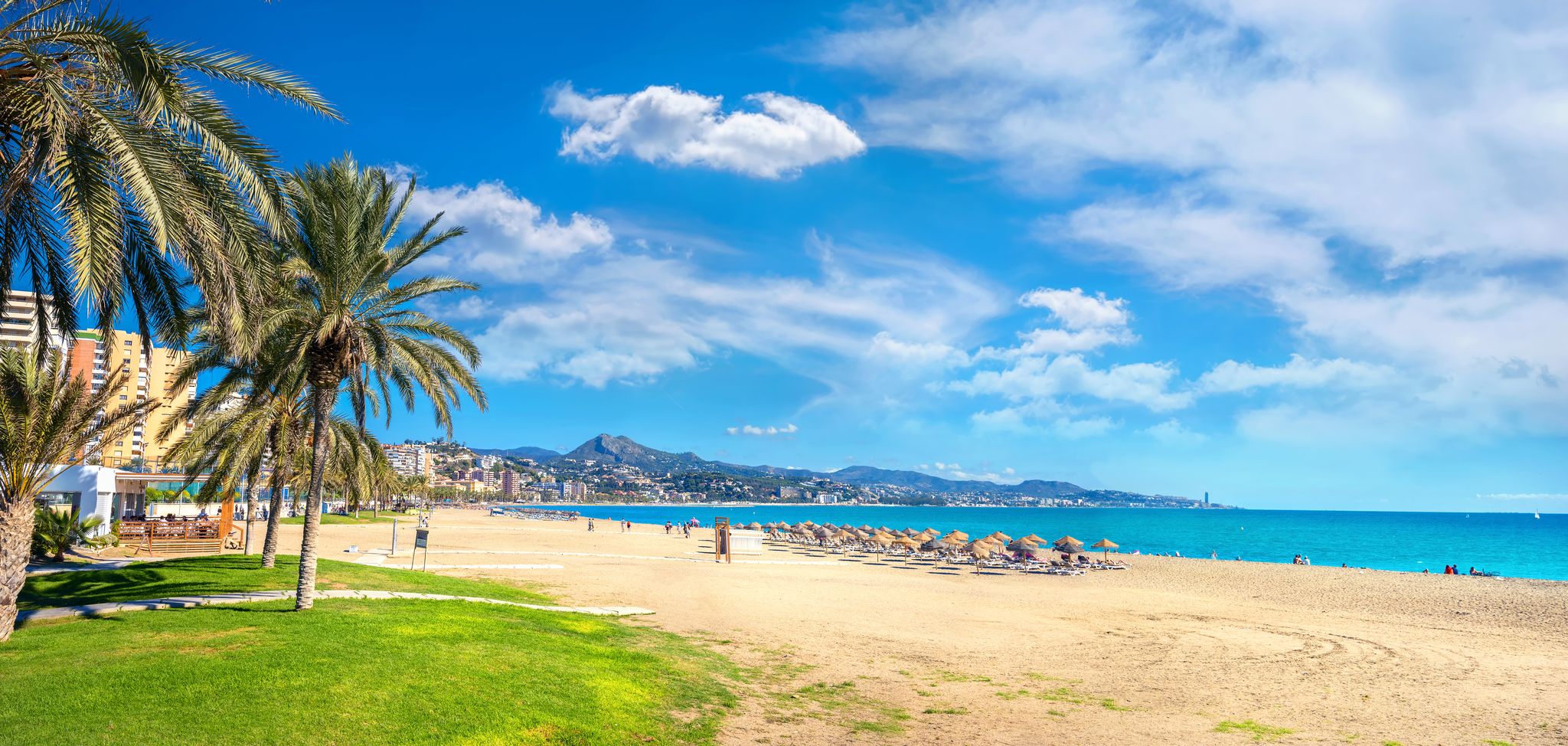
Malaga enjoys a Mediterranean climate, meaning hot, mostly dry summers and mild, wetter winters. While the city experiences over 300 days of sunshine a year, here’s what you need to know about visiting Malaga in every season.
Summer in Malaga (June–August): Expect hot, sunny days with average highs of 82–87 F (28–31 C). Rain is rare but not impossible, with occasional summer storms.
Autumn in Malaga (September–November): Temperatures gradually cool from 82 F (28 C) in September to 70 F (21 C) in November.
Winter in Malaga (December–February): Highs range from 61–66 F (16–19 C), much warmer than most of Europe. Some rainy days are expected, with mild afternoons.
Spring in Malaga (March–May): This season brings longer daylight hours and pleasant temperatures between 64 F (18 C) in March and 76 F (24 C) in May.
Malaga never experiences extreme cold, but summer heat can be intense, and winter nights may feel cool. Choosing the right season ensures you experience the city at its best, whether you’re after beach days, sightseeing, or lively festivals.
When To Go to Malaga Based on Your Travel Style
Deciding on the best time to visit Malaga depends on what kind of traveler you are. Some come for sunny beach days, others for cultural festivals, outdoor adventures, or budget-friendly trips.
Explore the section that matches your results to discover the best time to visit Malaga, top activities, and insider tips to make the most of your stay.
Best Time To Visit Malaga for a Beach Holiday
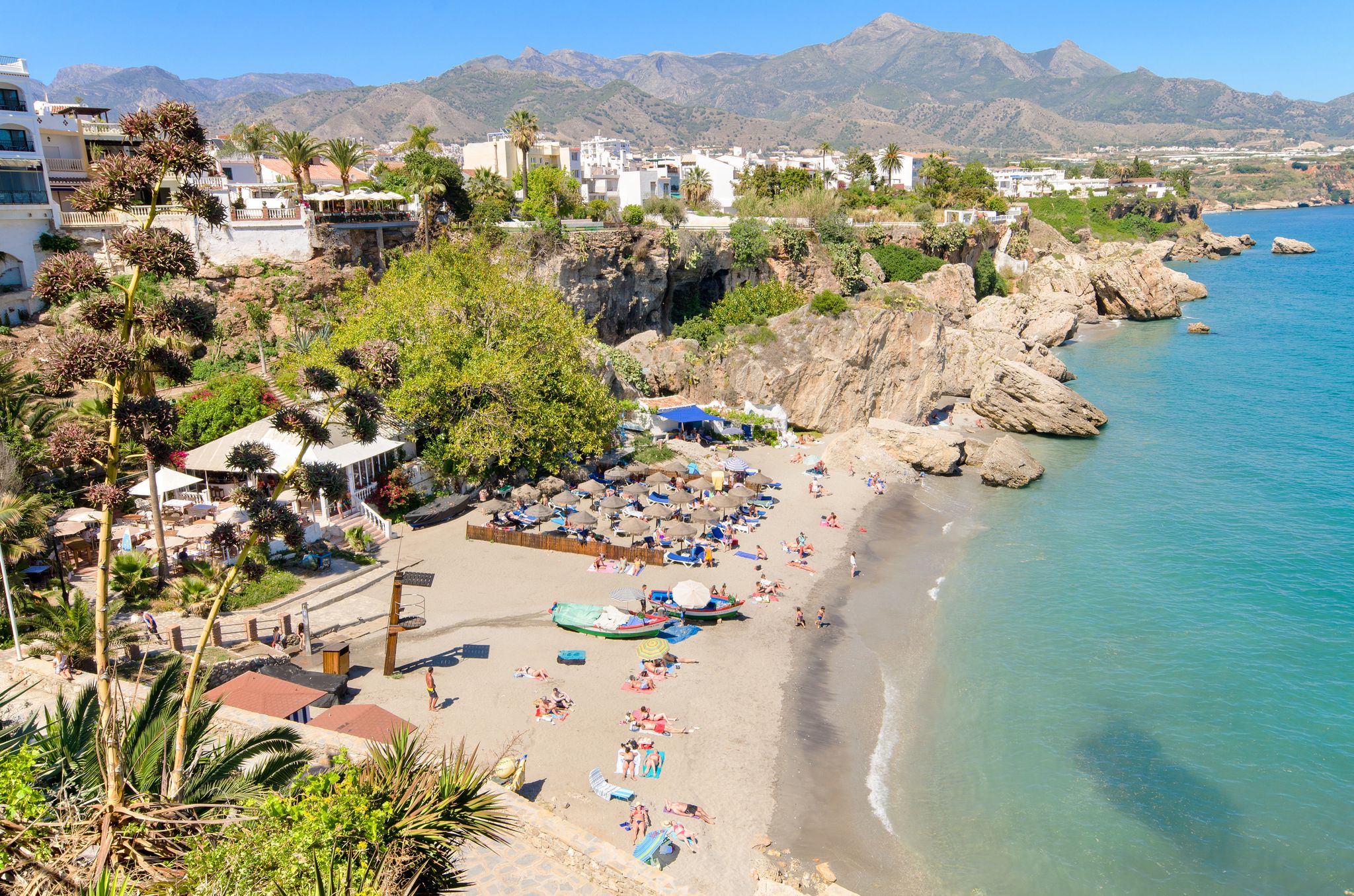
Malaga is one of Spain’s top beach holiday destinations, offering golden sands, clear Mediterranean waters, and a mix of lively city beaches and secluded coastal escapes.
The best beach season in Malaga runs from late June to early September, when the Mediterranean is at its warmest and the weather is consistently sunny. However, beach lovers who prefer fewer crowds and milder temperatures may find late May or early October a better time to visit.
Here’s what to expect by season:
Peak beach season in Malaga (Late June–Early September): The Mediterranean is at its warmest, with temperatures ranging from 73–79 F (23–26 C). The beach clubs are in full swing so expect crowds.
Quieter beach days in Malaga (Late May or Early October): The sea is still warm, but there are fewer tourists.
Spring beach season in Malaga (March–May): Ideal for coastal walks and sunbathing, but the sea is still cold for comfortable swimming.
Winter beaches in Malaga (December–February): The sea is too cold for swimming, but the season is the best time to visit Malaga for beachfront dining and photography.
Best Time To Visit Malaga’s Top Beaches
Malaga’s coastline offers a variety of beaches, from busy city beaches with full facilities to hidden coves with stunning natural scenery. Here are the best beaches in Malaga and the ideal time to visit each one.
When To Visit Playa de la Malagueta
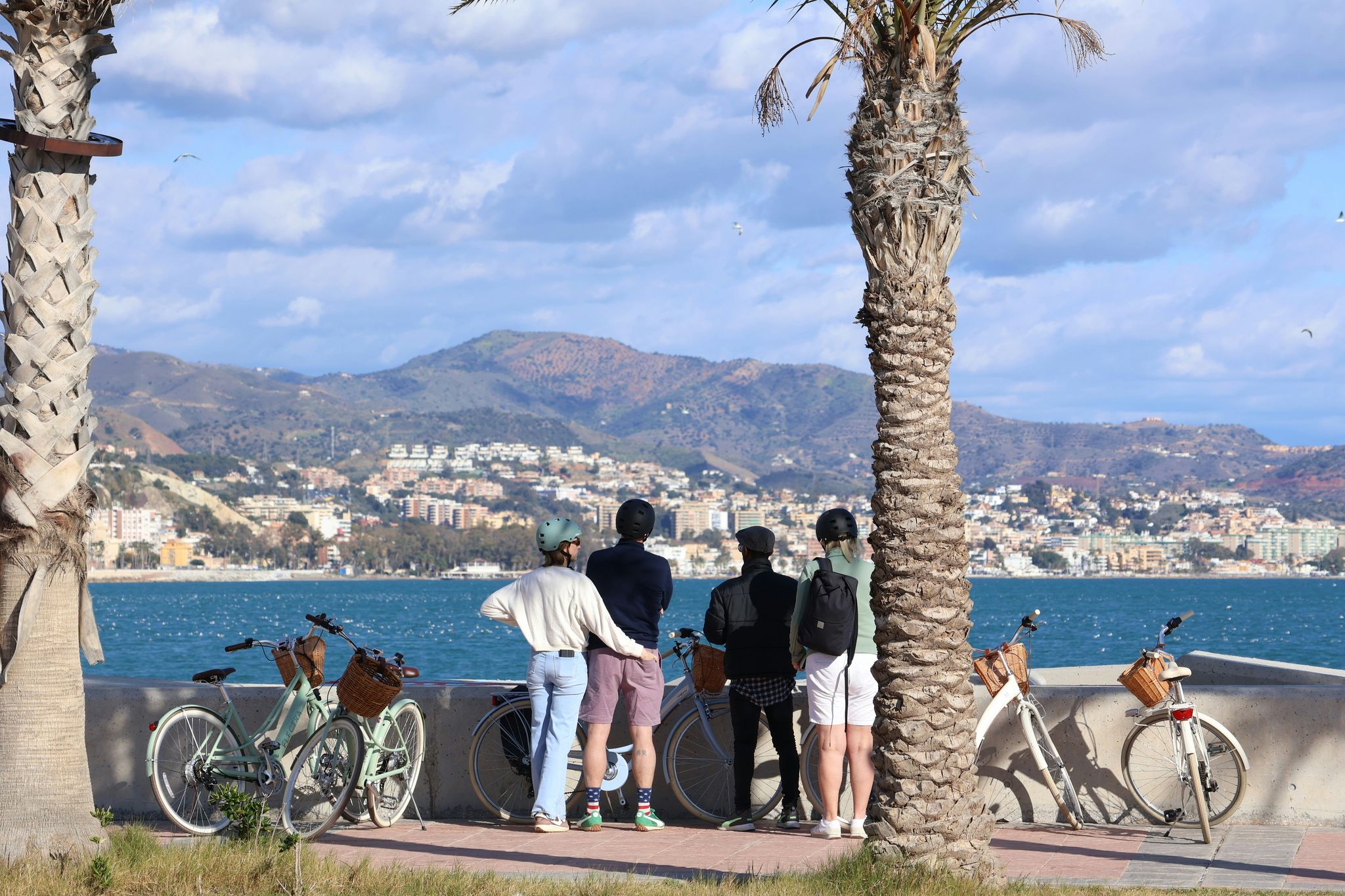
Playa de la Malagueta is just a short walk from the city center, making it a convenient spot for a quick beach escape. With lifeguards, sunbeds, and beachside restaurants, it’s a top choice for families and first-time visitors. Its proximity to Malaga’s historic center makes it easy to combine a beach day with sightseeing.
The best time to visit Playa de la Malagueta for a quick beach and sightseeing holiday in Malaga is from June to September, when the Mediterranean is warm enough for swimming. For a quieter atmosphere with pleasant weather, May and October are great alternatives.
When To Visit Playa de Maro

Located near the town of Nerja, Playa de Maro is a hidden cove with crystal-clear waters and lush green cliffs, making it one of the most beautiful beaches near Malaga. Its rocky seabed and diverse marine life create an ideal environment for snorkeling and kayaking, allowing you to explore underwater ecosystems safely.
The best time to visit Playa de Maro is from June to September, when the water is warmest and visibility is at its best for snorkeling in and around Malaga. For a quieter experience with mild conditions, early October remains a great time for kayaking and paddleboarding.
When To Visit Playa Peñon del Cuervo
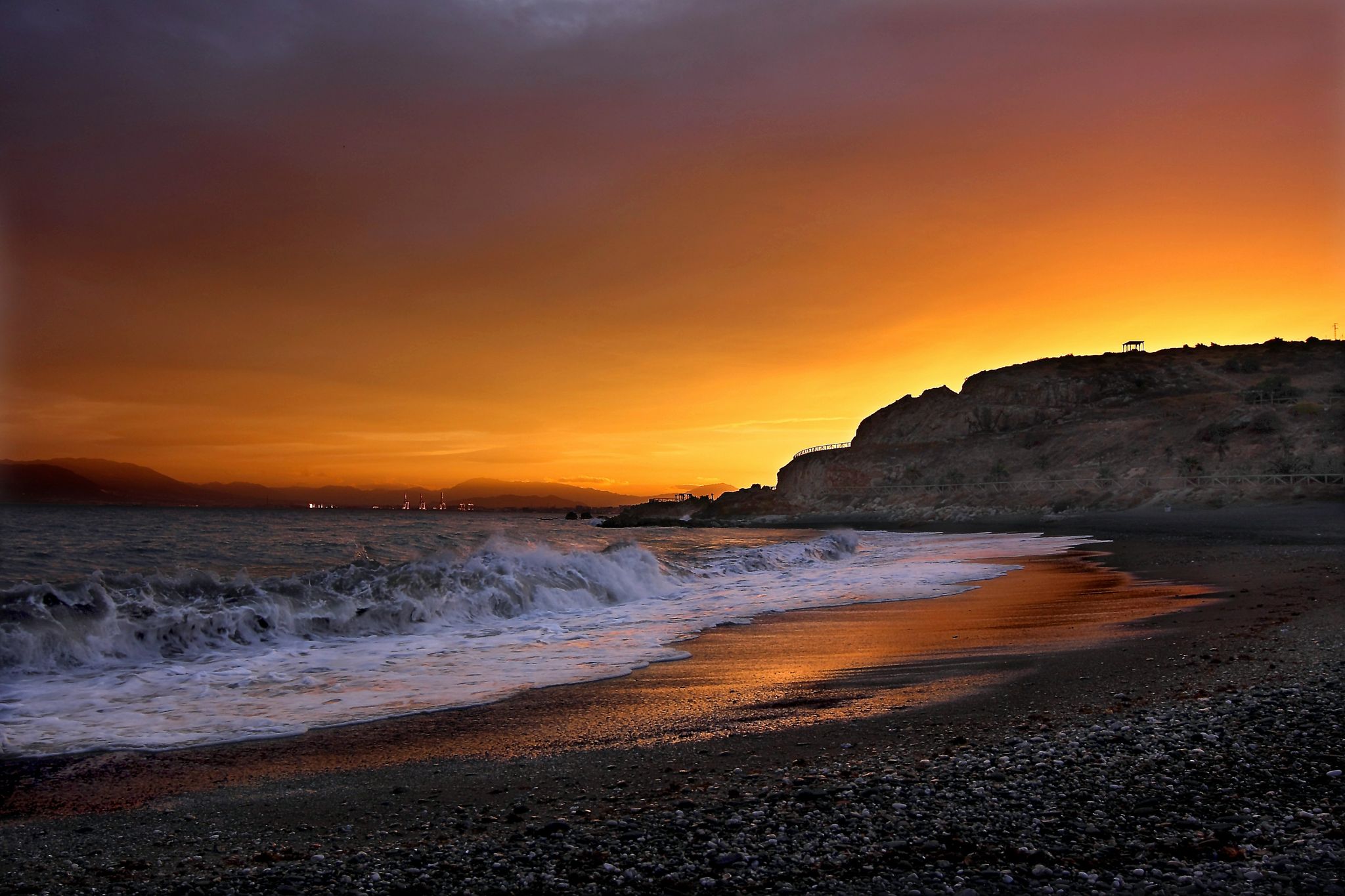
One of Malaga’s most unique beaches, Playa Peñon del Cuervo is best known for its striking rock formation rising from the sea. Unlike busier city beaches, this hidden gem offers a peaceful, scenic setting, making it a favorite among locals and photographers alike.
The best time to visit Malaga for a trip to Peñon del Cuervo is from September to November, when the crowds have thinned and the weather is mild. The beach is especially stunning at sunset, as the golden light casts dramatic shadows on the Peñon del Cuervo rock.
In September and November, the beach is an ideal spot for a professional photoshoot in Malaga. The golden-hour lighting bathes the scenery in a warm glow that enhances your best angles and the natural backdrops.
When To Visit Playa de los Alamos
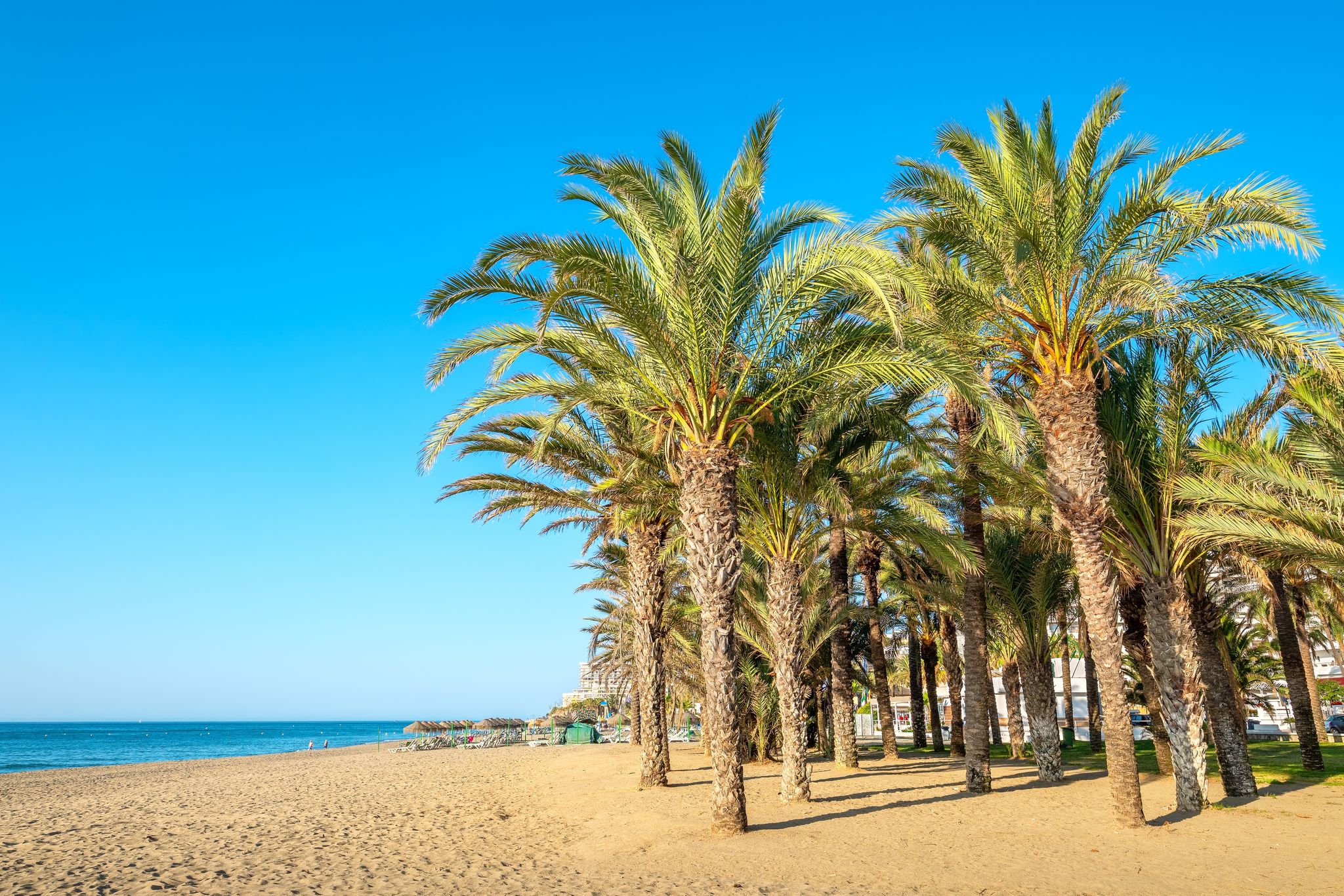
Just outside the town of Torremolinos, Playa de los Alamos is a top destination for watersports, vibrant beach clubs, and a buzzing nightlife scene. With golden sands and steady coastal breezes, it attracts younger travelers and adventure seekers looking to experience Costa del Sol’s famous beach party atmosphere.
For watersports enthusiasts, Playa de los Alamos is ideal from July to August, when the waters are warm and equipment rentals for windsurfing, jet skiing, and paddleboarding are in full operation. Kitesurfing is also popular, especially in the late afternoon when the wind conditions are at their peak.
For a more laid-back beach experience with fewer crowds, September is the ideal time to visit.
Best Time To Visit Malaga for Water Activities
Malaga’s coastal location makes it an ideal place for sailing, snorkeling, and paddleboarding, but the best time for each activity varies.
Best Time for Sailing in Malaga
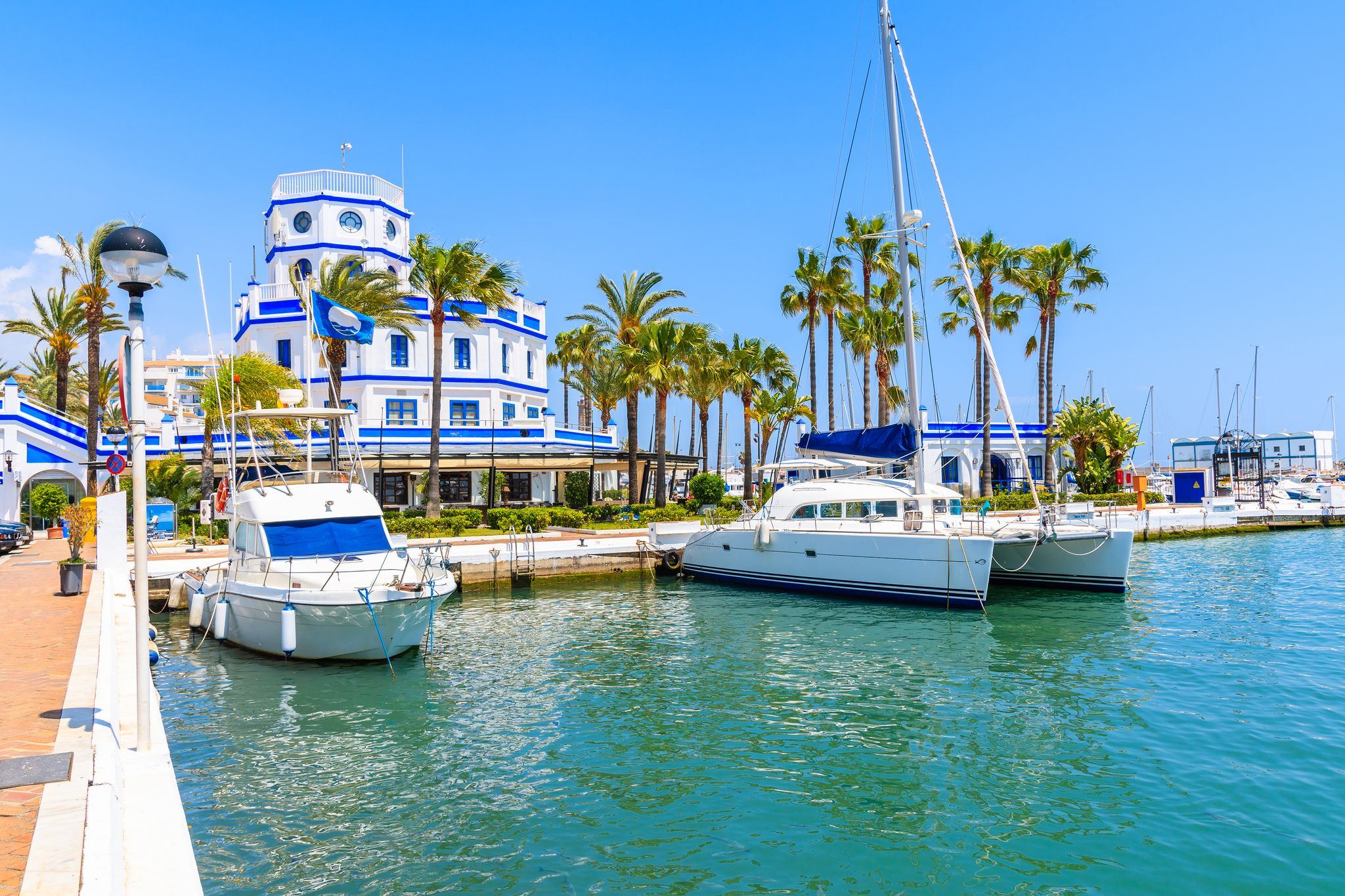
Sailing tours in Malaga typically run from April to October, with spring and autumn offering more wind-friendly conditions for active sailing. These seasons bring brisker breezes, making them ideal for those who enjoy dynamic sailing experiences.
For a more relaxed cruise, July and August are the best months, as the Mediterranean waters are at their calmest. A sunset catamaran cruise in Malaga is one of the most popular water activities during these months. Enjoy the clear skies, warm evenings, and smooth waters—perfect for a scenic coastal adventure.
Many sailing excursions also include dolphin sightseeing, as pods of bottlenose and common dolphins are frequently spotted off the coast. The best time for dolphin-watching experiences in Malaga is from May to October, when the sea is warm and marine life is most active.
Choosing the right season depends on your sailing style. Visit during spring and autumn for stronger winds and an active sailing adventure, or in summer for gentle seas, sunset cruises, and a chance to spot dolphins in the wild. You'll have plenty of options to enjoy popular water activities in Malaga.
When To Go Paddleboarding & Kayaking in Malaga

Paddleboarding and kayaking in Malaga are best from May to September, when the Mediterranean waters are calm, warm, and crystal clear. Mornings offer ideal conditions, with gentle waves and lighter winds, making them perfect for beginners and scenic coastal paddles.
For the most breathtaking routes, Playa de Maro and the Maro-Cerro Gordo Cliffs remain top choices for kayaking and snorkeling, offering hidden caves, dramatic rock formations, and rich marine life. You can find more details about this stunning spot in the When To Visit Playa de Maro section above.
Best Time To Visit Malaga for Snorkeling & Scuba Diving Tours

For the best underwater visibility, visit between late July and September, when the Mediterranean waters are warm, clear, and full of marine life.
During these months, calm sea conditions create the perfect opportunity for a boat tour along the coast of Benalmadena. Here, you’ll have the chance to snorkel in crystal-clear waters and spot colorful fish, octopuses, and even sea turtles in their natural habitat.
Guided snorkeling and diving tours run throughout the summer, offering expert-led excursions to the most vibrant underwater ecosystems.
When Should Beach Lovers Visit Malaga?
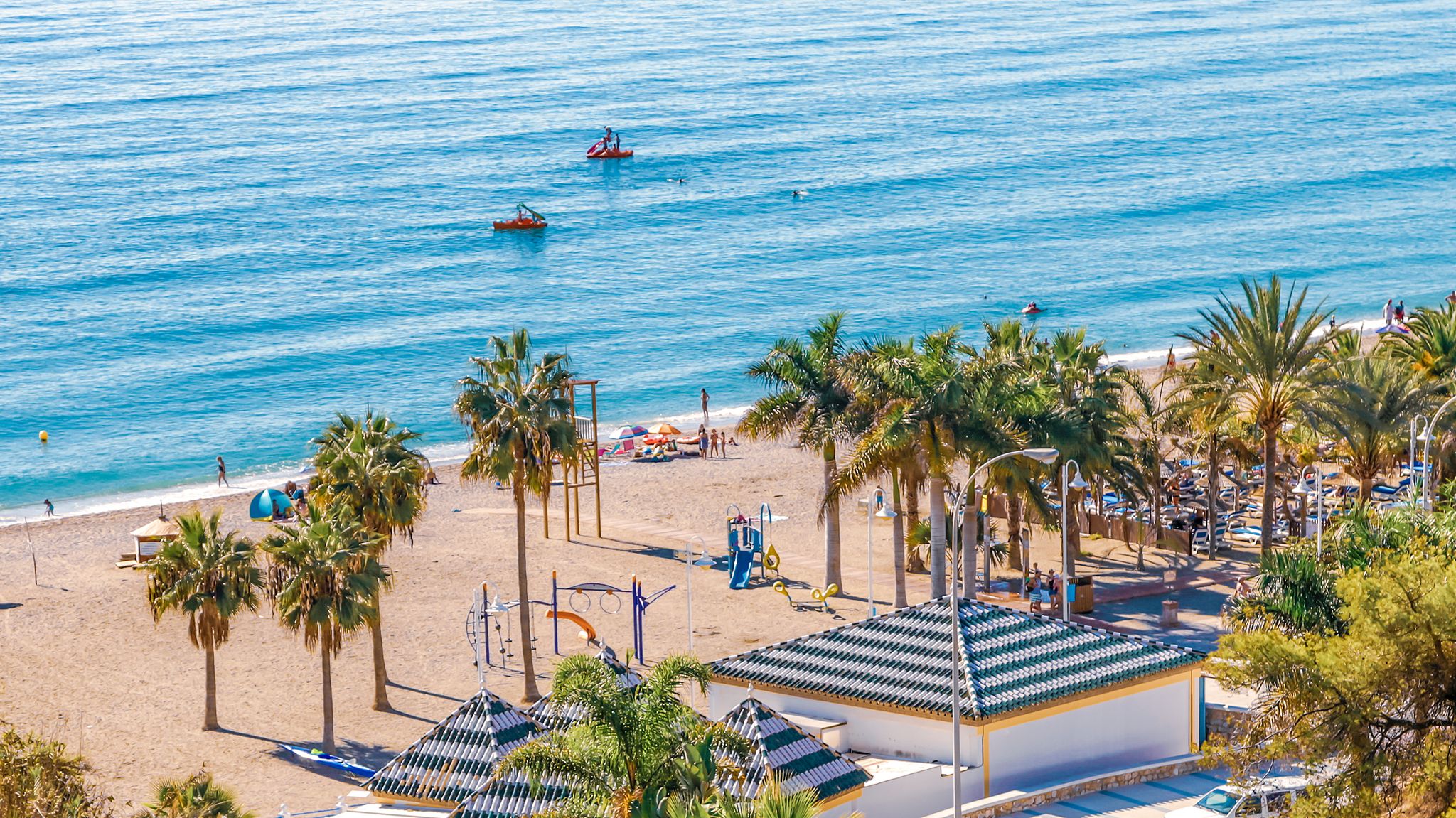
If you’re planning the ultimate 10-day beach holiday in Malaga, the best time depends on your priorities:
For warm beach weather, swimming, and a lively atmosphere: Late June to early September
For a quieter beach experience without cold sea temperatures: Late May or early October
For watersports and outdoor activities: May to September
For scenic coastal walks and photography: March to May, October to November
While summer offers the best beach conditions, the crowds can be overwhelming. Early September is often the perfect compromise, with warm waters but fewer tourists, making it one of the best times to enjoy Malaga’s coastline.
Best Time To Visit Malaga for Culture
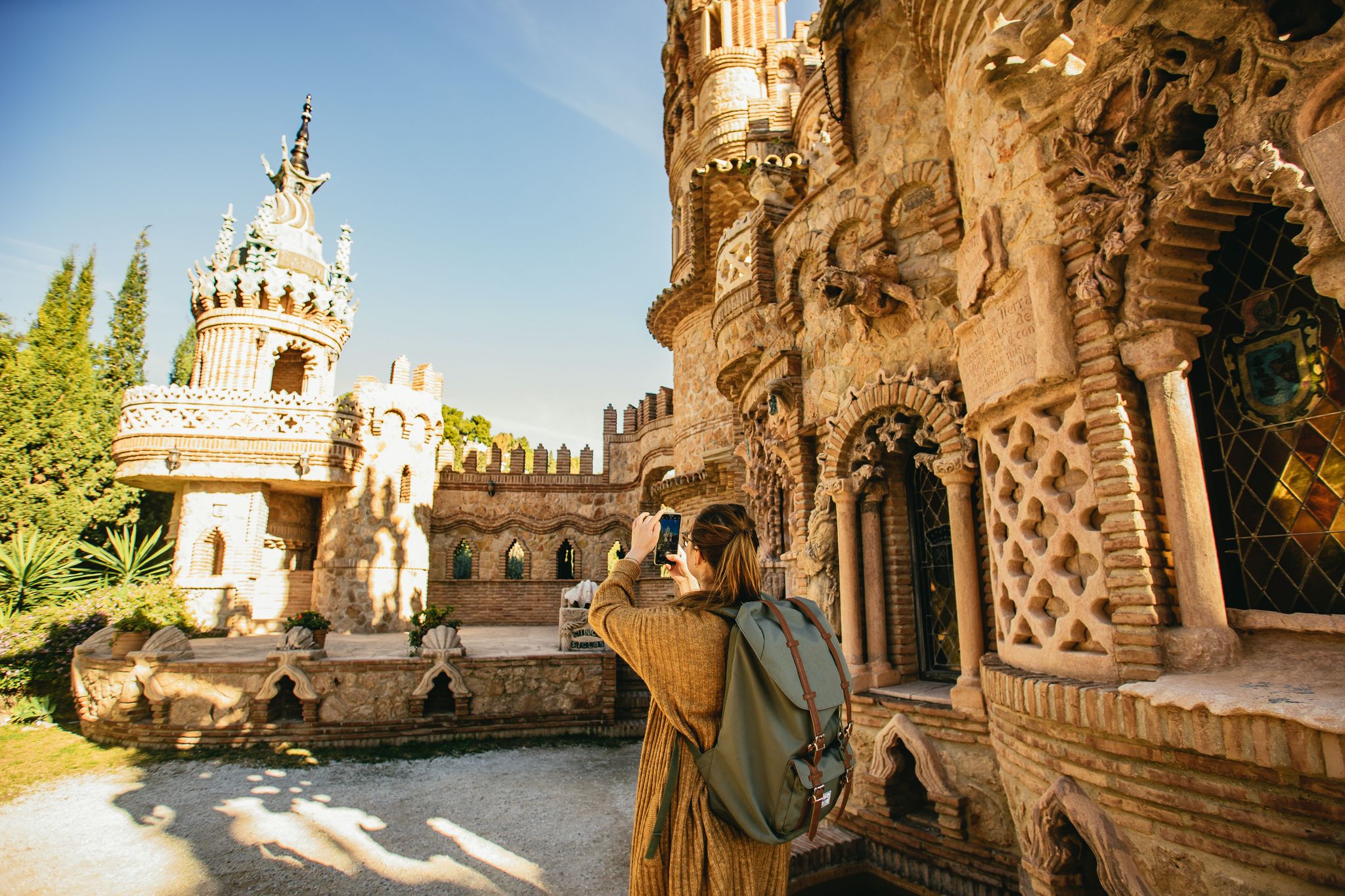
Malaga is one of Spain’s most culturally rich cities, blending Roman, Moorish, and Andalusian influences with a thriving modern arts scene. As the birthplace of Pablo Picasso, Malaga is a must-visit for art lovers, history buffs, and travelers eager to experience authentic Spanish traditions.
However, the best time to visit Malaga for culture depends on your travel goals. Some visitors prefer cooler months for walking tours in Malaga and beyond, while others come for iconic festivals like Semana Santa and Feria de Malaga.
While Malaga’s museums and historic sites are open year-round, cultural events and festivals vary by season. Here’s what to expect:
Spring in Malaga (March–May): Best for open-air performances, local traditions, and historical sightseeing activities in Malaga.
Summer in Malaga (June–August): A lively season with traditional festivals like Feria de Malaga, though the heat can make joining Malaga city tours challenging.
Autumn in Malaga (September–November): A perfect balance of comfortable weather and major cultural celebrations.
Winter in Malaga (December–February): The quietest time for museum visits and flamenco performances in Malaga. December brings Malaga’s famous Calle Larios Christmas light show, traditional holiday markets, and nativity displays.
Best Time To Visit Malaga’s Cultural Sites & Landmarks
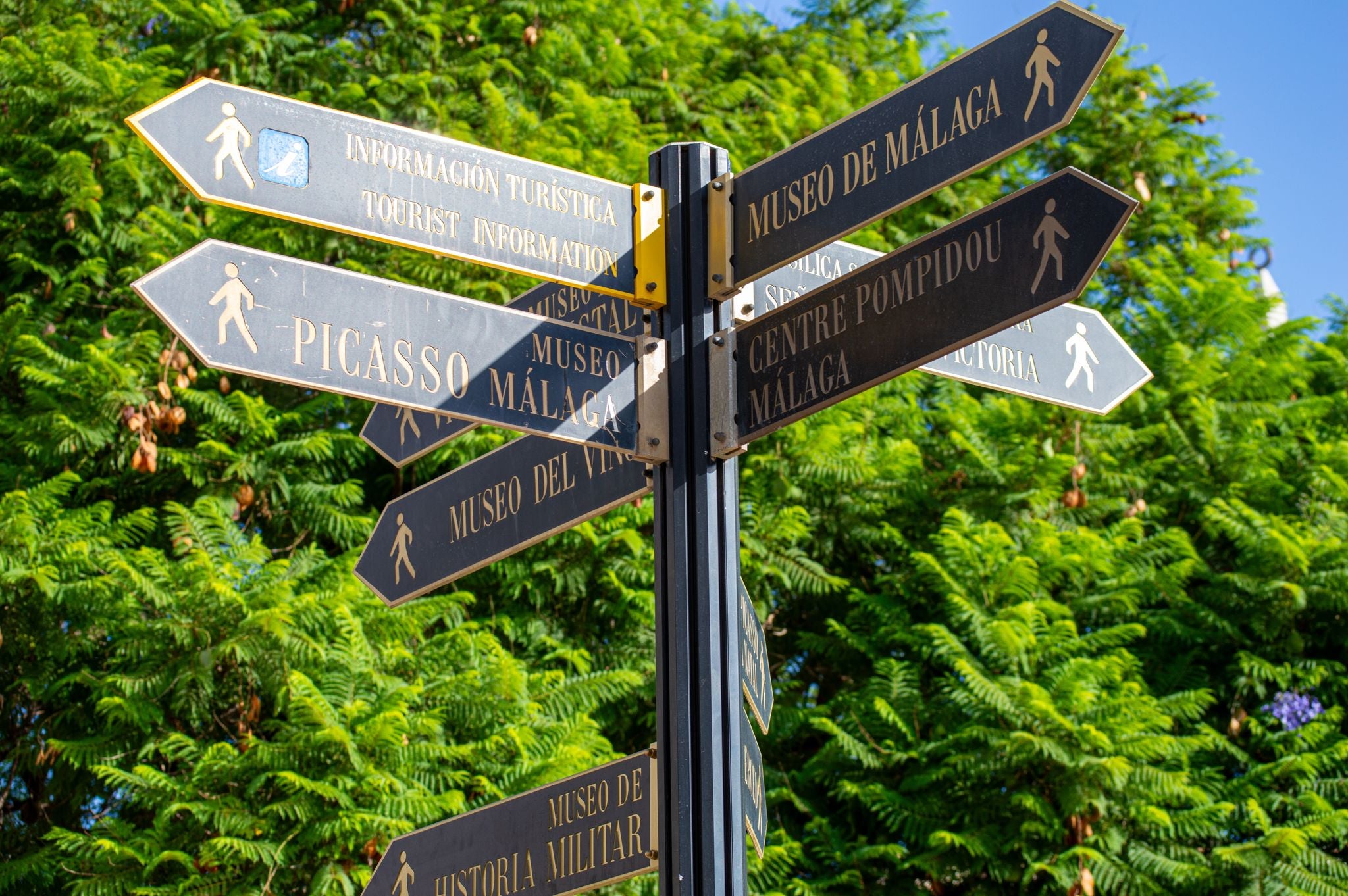
Malaga’s rich history is woven into its landmarks, from Moorish fortresses to Roman ruins and world-class museums. Here are some of Malaga’s top cultural attractions and when to visit them.
When To Visit Alcazaba & Gibralfaro Castle
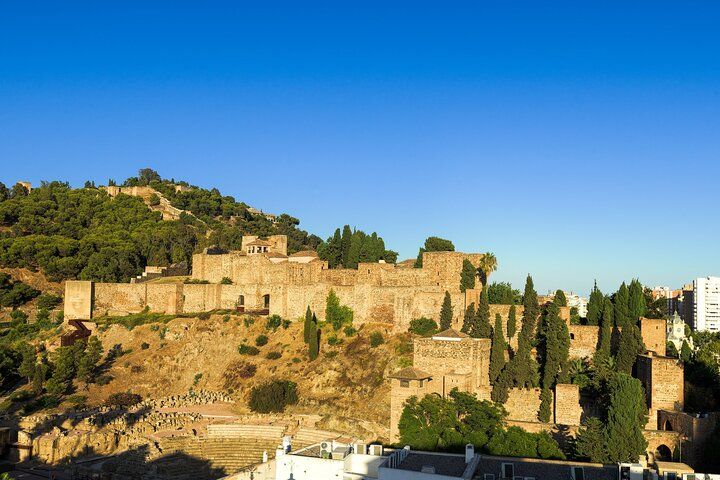
The Alcazaba of Malaga is one of Spain’s best-preserved Moorish fortresses, offering a glimpse into Andalusia’s Islamic past. Above it, Gibralfaro Castle provides stunning panoramic views over Malaga and the Mediterranean Sea.
Spring and autumn offer the most comfortable weather for a guided Alcazaba of Malaga tour, making the steep walk to Gibralfaro easier. Summer visits can be challenging due to high temperatures.
When To Visit Picasso Museum

Housed in a 16th-century Andalusian palace, the Picasso Museum Malaga is dedicated to the life and work of Pablo Picasso, the city’s most famous artist.
Weekday mornings in winter, when there are fewer crowds, are ideal for visiting the Picasso Museum. For an exclusive experience, a private tour of the Picasso Museum offers a deeper look into Picasso’s early influences and artistic evolution.
When To Visit Teatro Romano
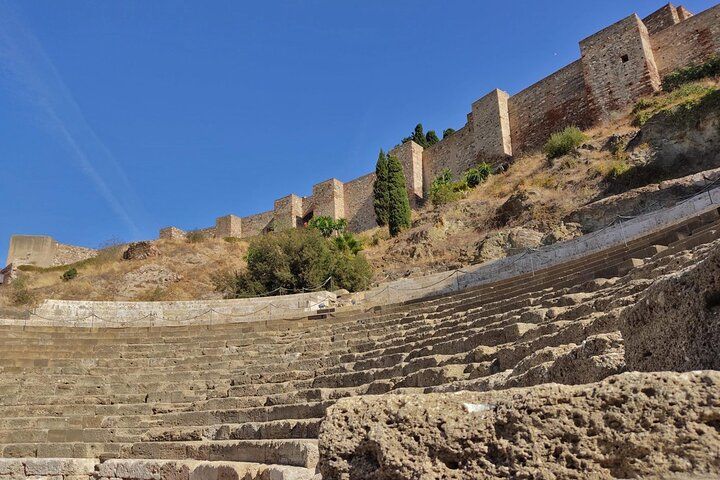
Dating back to the first century B.C., the Teatro Romano is one of Spain’s best-preserved Roman theaters, located at the foot of the Alcazaba. The site remains a working open-air venue, hosting performances during select times of the year.
Spring or autumn is the best time to visit Malaga’s Teatro Romano, as you may catch a live outdoor performance. A combined tour of Alcazaba, Teatro Romano, and Malaga Cathedral is a great alternative if visiting in other seasons.
When To Visit Carmen Thyssen Museum
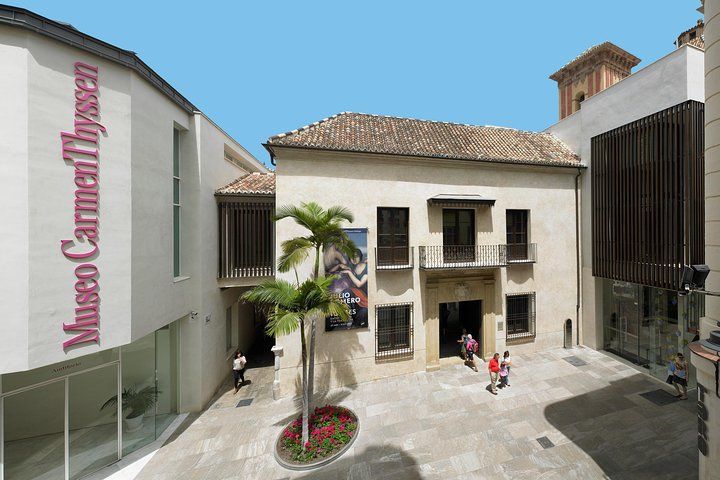
This museum features a fantastic collection of 19th-century Spanish and Andalusian paintings, offering insight into the artistic heritage of Malaga and southern Spain. A highlight of the collection includes works depicting scenes of bullfighting and flamenco, two iconic Andalusian traditions.
The best times to visit are winter mornings and late afternoons in summer for a quieter experience. You can also book your tickets to Carmen Thyssen Museum in advance to ensure a hassle-free visit.
Best Festivals in Malaga and When to Experience Them This 2025
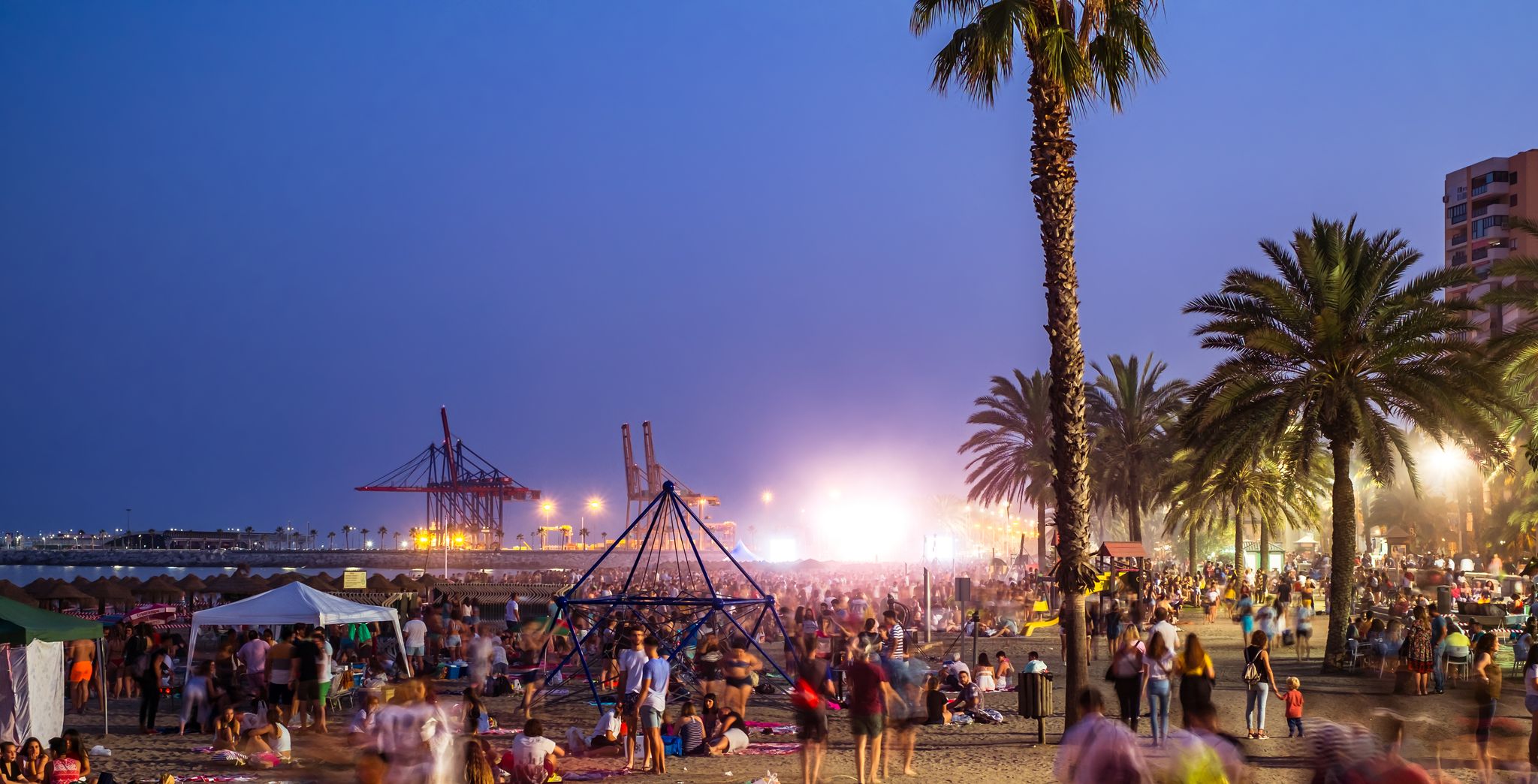
Malaga's festivals offer some of the most immersive cultural experiences in Spain. From religious processions to film festivals, here's when to visit Malaga in 2025 to participate in local events:
Semana Santa (Holy Week) – Málaga’s Most Iconic Religious Festival
2025 Dates: April 13–April 20
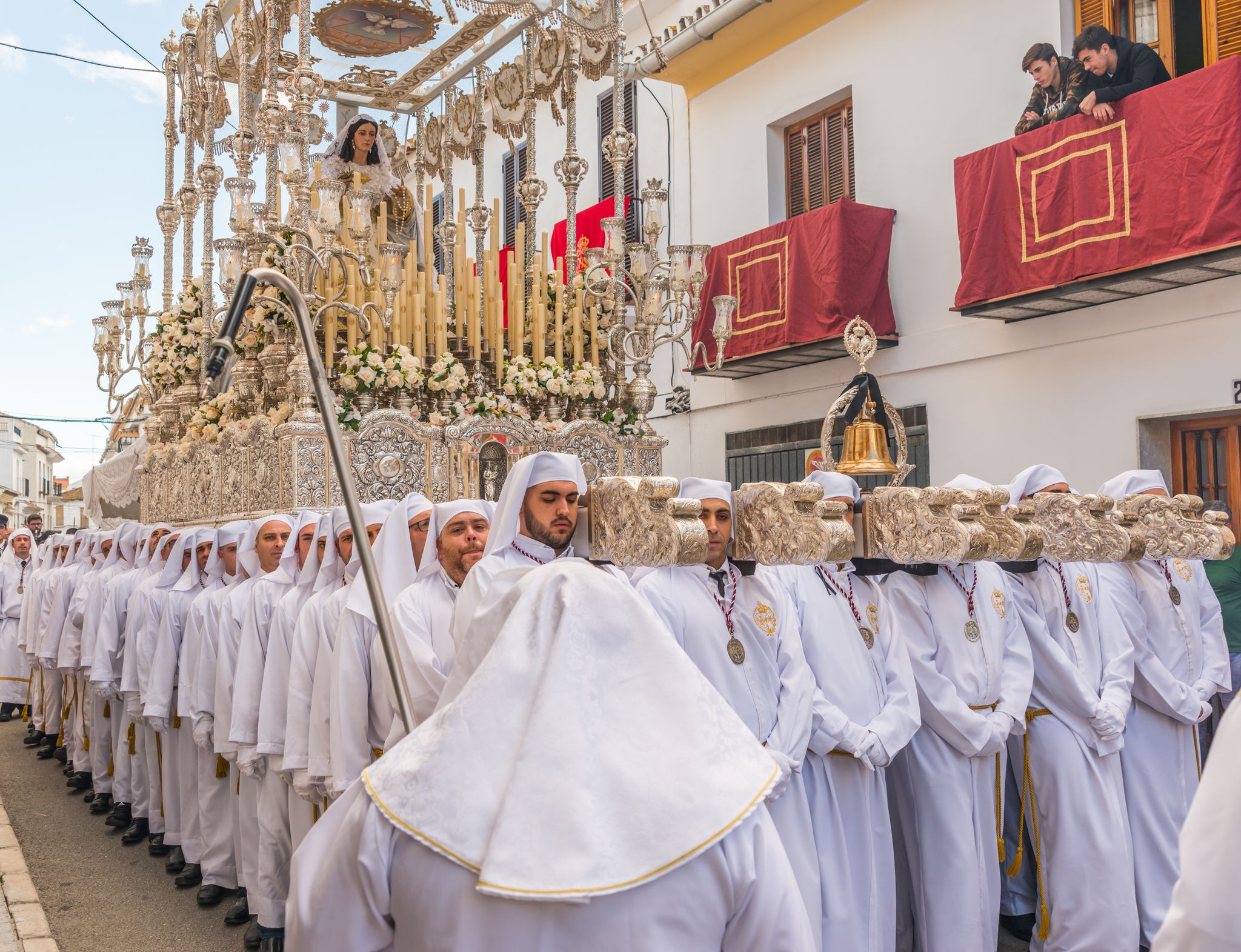
Semana Santa in Malaga is one of Spain’s most famous Holy Week celebrations, featuring grand candlelit processions, massive religious floats, and traditional music. Thousands of spectators line the streets to witness these historic traditions.
Feria de Malaga – A Week-Long Summer Celebration
Expected Dates: Mid-August 2025
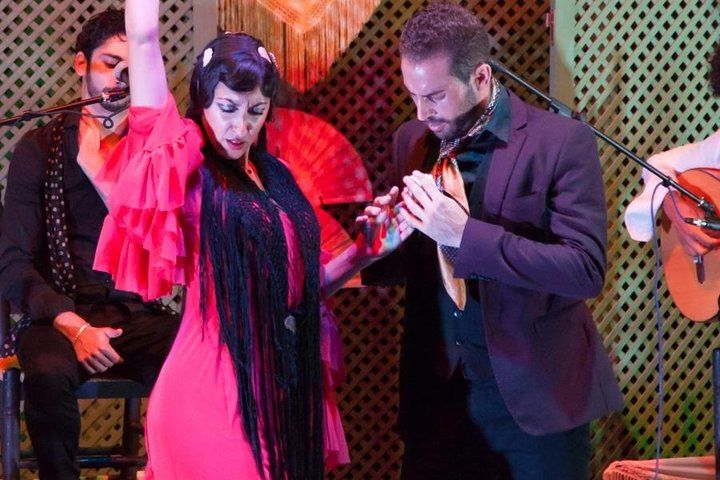
Every August, Malaga hosts its largest annual festival, transforming the city into a vibrant celebration of Andalusian culture. Expect flamenco performances, horse parades, fairgrounds, and music-filled streets. While the 2025 Feria de Malaga dates have yet to be confirmed, it traditionally takes place in mid-August.
Malaga Film Festival – A Celebration of Spanish Cinema
2025 Dates: March 14–March 23

One of Spain’s most important film festivals, the Malaga Film Festival showcases Spanish-language cinema. It features film premieres, red-carpet events, and Q&A sessions with filmmakers and actors.
Malaga Carnival - A Pre-Lenten Festive Extravaganza
2025 Dates: February 22–March 2
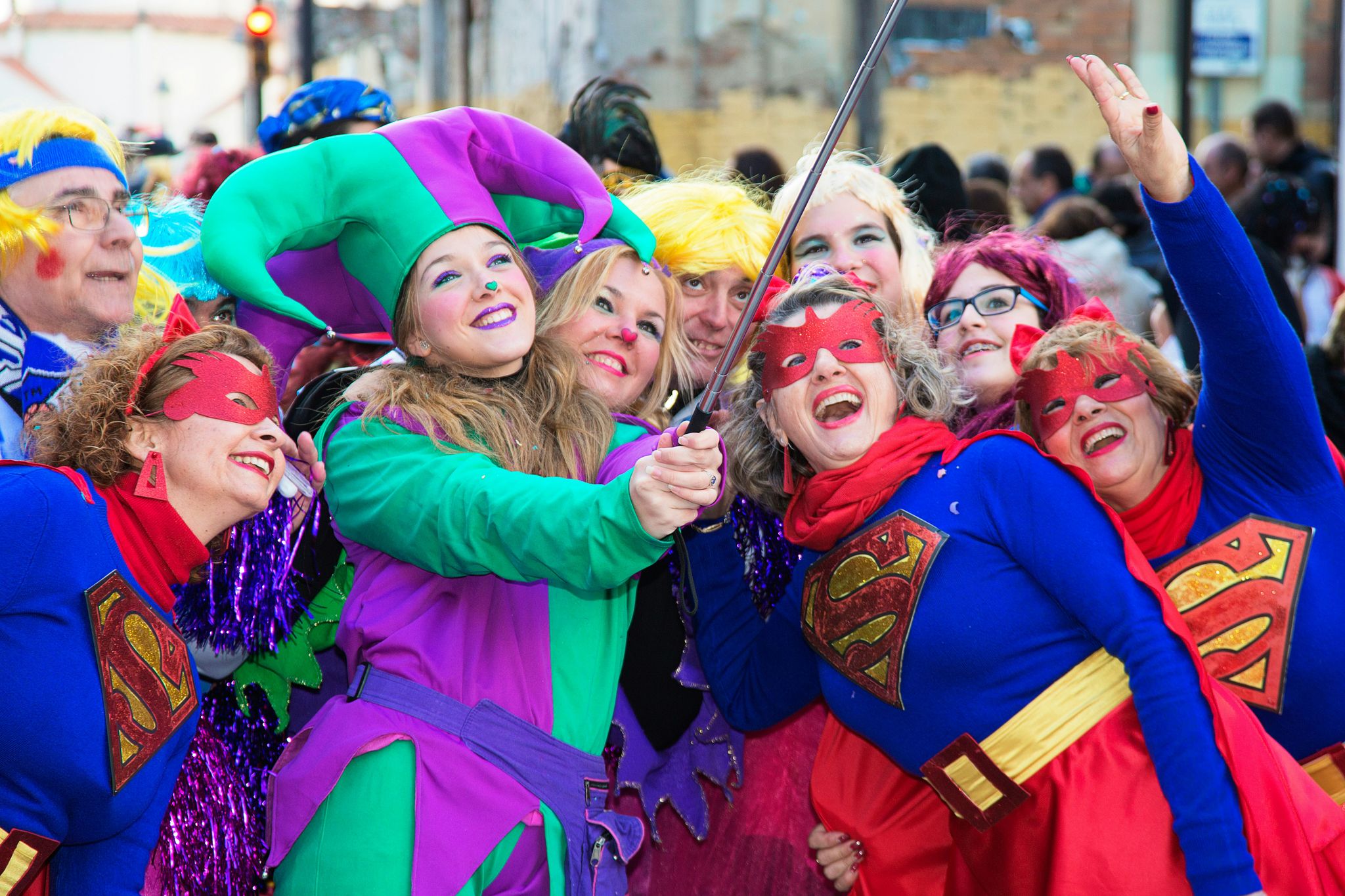
Malaga Carnival is a lively pre-Lenten festival filled with parades, street performances, and elaborate costumes. The city bursts with energy as locals and visitors join the celebrations.
When Should Culture Lovers Visit Malaga?
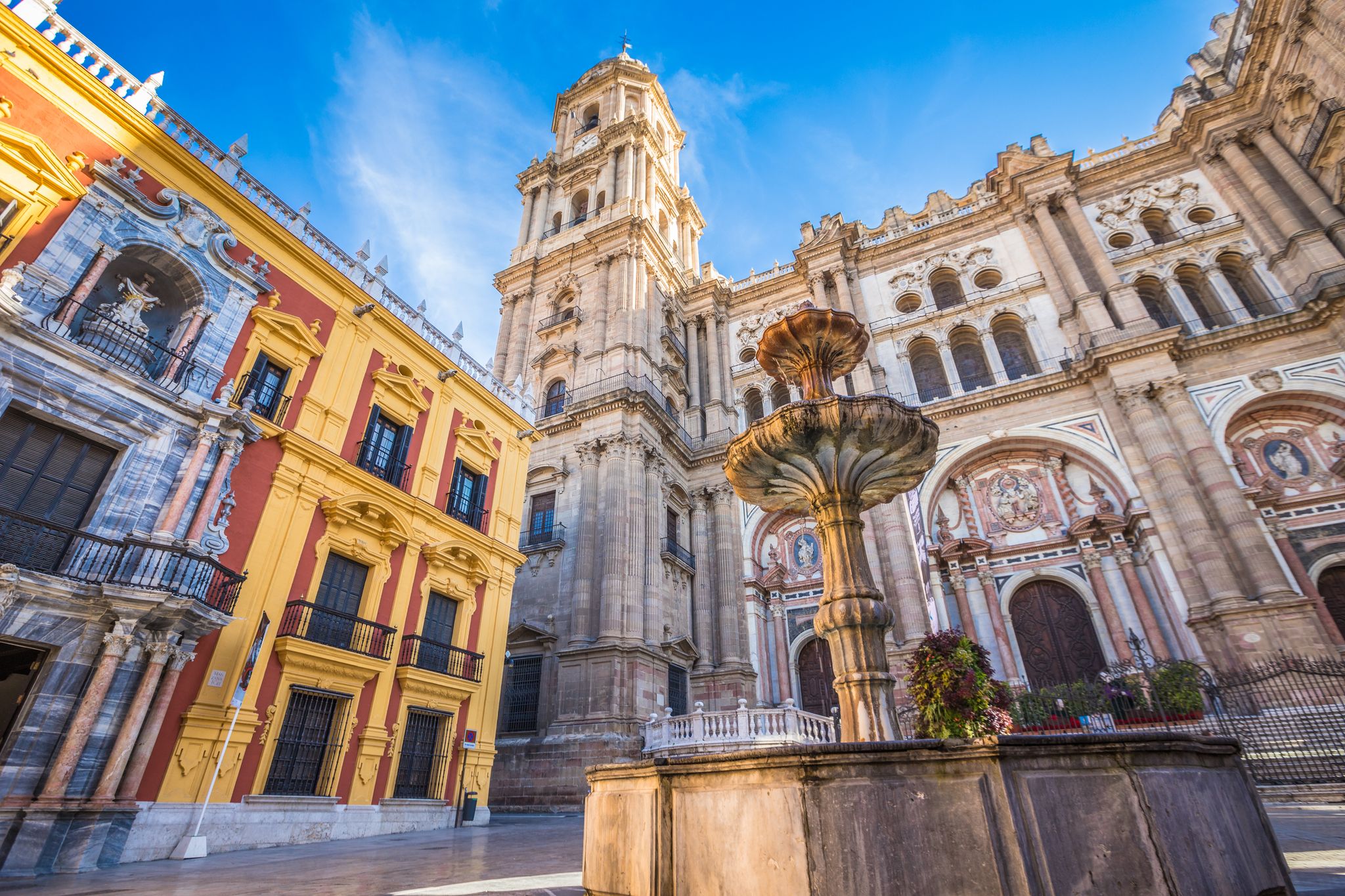
The best time to visit Malaga depends on what type of cultural traveler you are:
Festival Enthusiast: Visit between March and May for Semana Santa or in August for Feria de Malaga. December also offers festive holiday traditions.
History and Architecture Buff: The best months for sightseeing without extreme heat or crowds are March–May and September–November.
Museum and Art Lover: For a quiet museum experience and fewer tourists, January and February are ideal.
Spring and late summer bring Malaga’s most vibrant cultural events, while autumn and winter offer a more relaxed setting for exploring the city’s historic sites and museums.
Best Time To Visit Malaga for Outdoor Adventures

Malaga is more than just beaches and historic sites—it’s a gateway to some of Spain’s best outdoor adventures. From thrilling hikes along cliffside walkways to scenic mountain trails and paragliding over the coastline, the region offers year-round experiences for adventurous travelers.
Outdoor activities in Malaga are heavily influenced by the weather. Summer is often too hot for intense hiking, while winter brings unpredictable rain. Spring and autumn provide the best conditions for most outdoor adventures, offering mild temperatures and fewer crowds.
Here’s a seasonal breakdown to help you make the most of your trip:
Spring (March–May): Perfect for hiking scenic trails and exploring mountain landscapes before the summer heat kicks in.
Summer (June–August): Best for adrenaline sports like paragliding and rock climbing, though mid-day heat limits long hikes.
Autumn (September–November): A top season for outdoor adventures, with crisp air and cooler conditions for exploring Malaga’s wild side.
Winter (December–February): Ideal for light hikes and nature escapes, but expect occasional rain in the mountains.
When To Experience the Best Outdoor Adventures in Malaga
While experiences are available year-round, the best time to visit Malaga for nature-based activities depends on the season. Spring and autumn provide ideal conditions for hiking and climbing, while summer is better suited for high-flying thrills like paragliding. Here's when to experience Malaga’s top outdoor adventures.
Best Time To Visit Caminito del Rey for Epic Cliffside Hikes
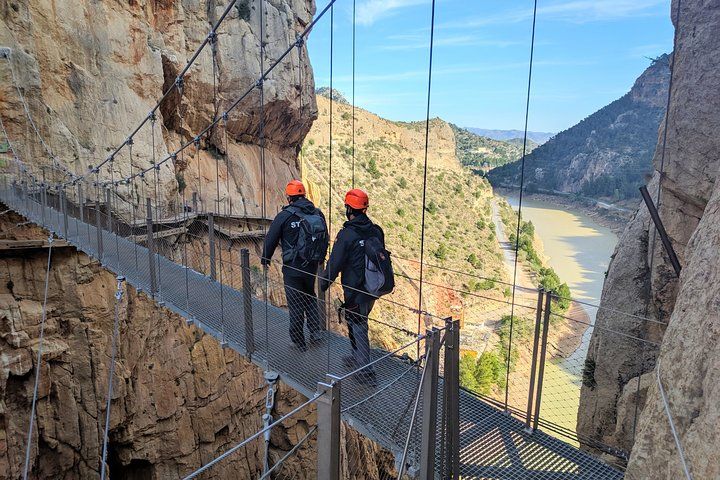
The best time to visit Malaga and hike Caminito del Rey is March–May and September–November, when temperatures are mild and conditions are ideal for walking. Hiking between June and August is possible, but it’s best to start early in the morning to avoid the summer heat.
Once known as “the world’s most dangerous walkway,” Caminito del Rey is now one of Spain’s most scenic and accessible hikes, following a narrow boardwalk suspended 328 feet (100 meters) above the El Chorro Gorge. This breathtaking five-mile (eight-kilometer) trail offers jaw-dropping views of cliffs, canyons, and river valleys.
How To Get To Caminito del Rey From Malaga
Direct trains run from Malaga to El Chorro station, where shuttle buses take hikers to the trailhead. You can also book a guided Caminito del Rey hiking tour with pickup from Malaga for a hassle-free experience.
Key Things To Know Before You Hike
Entry is ticketed, and advanced booking is required. Visitor numbers are restricted, and last-minute tickets are rarely available.
The hike isn’t overly strenuous, but at five miles (eight kilometers) long, it requires a reasonable level of fitness. Expect to spend about two and a half to three hours on the trail.
Caminito del Rey’s walkway has glass-bottom sections and may not be suitable for visitors with a fear of heights.
Wear sturdy, closed-toe shoes—trainers or hiking boots are best—as parts of the boardwalk can be slippery.
Best Time for Rock Climbing in El Chorro for Extreme Thrills
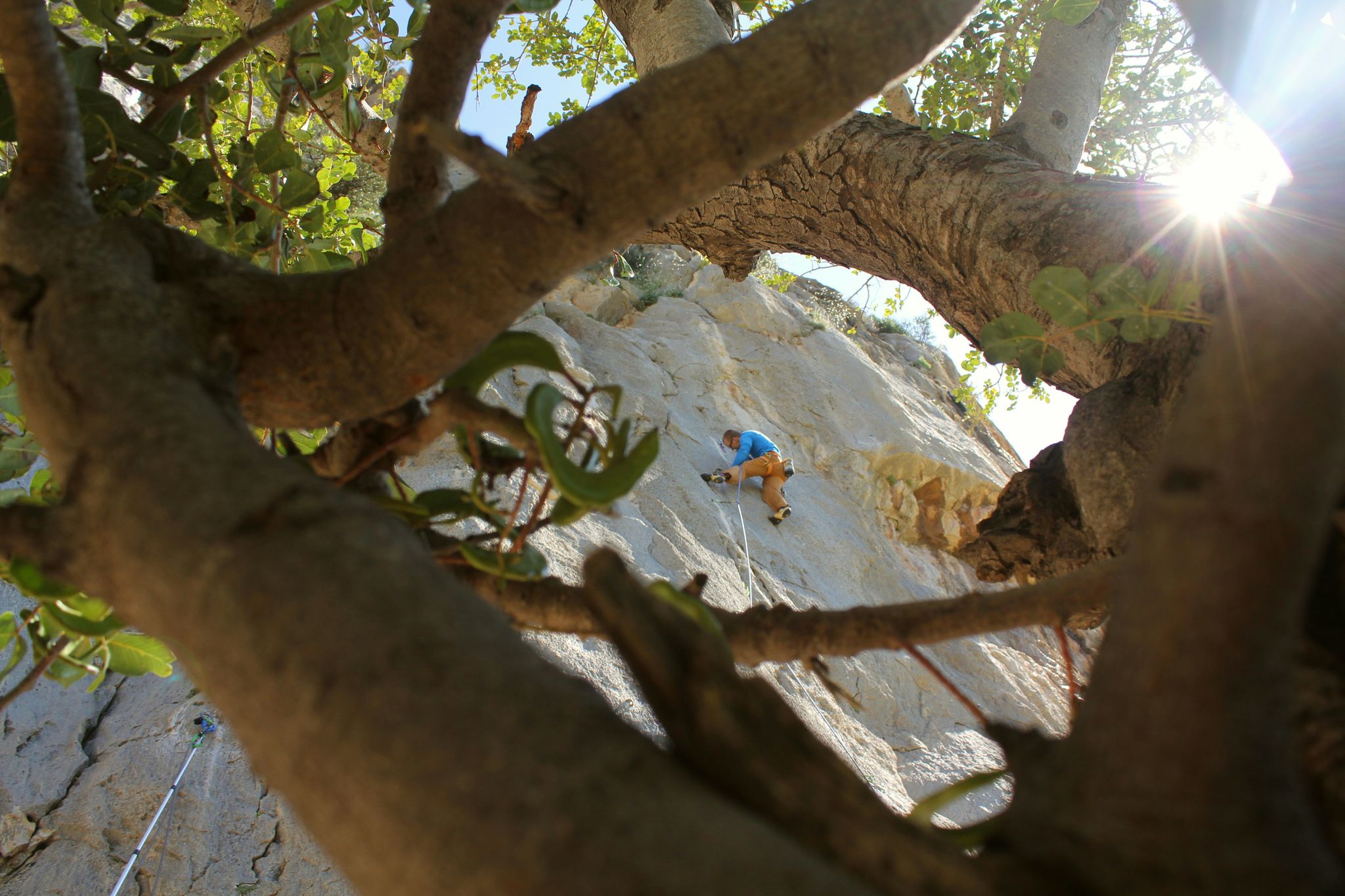
The best months for climbing El Chorro are October to April, when cooler temperatures, low humidity, and stable rock conditions make for an enjoyable climb. In May–September, midday climbing is challenging due to the heat, but shaded routes and early morning or late afternoon sessions can still be an option.
El Chorro, located near but separate from Caminito del Rey, is one of Spain’s premier climbing destinations. Known for its dramatic limestone cliffs, deep gorges, and technical routes, it attracts climbers from around the world. From beginner-friendly crags to advanced overhangs, the area is a must-visit for anyone looking to tackle thrilling outdoor routes in Malaga.
Getting to El Chorro From Malaga
You can rent a car in Malaga and take a 45-minute drive to the town of El Chorro. Parking is available near major climbing areas.
You can also take a direct train from Malaga Maria Zambrano station to El Chorro. The train ride takes about 40 minutes, with services running multiple times daily. From the station, some climbing areas are within walking distance, while others may require a short taxi ride.
Key Things To Know Before You Climb
While El Chorro is famous for advanced sport climbing, there are top-rope and multi-pitch routes suitable for beginners.
If you're unfamiliar with the area or want expert advice, consider a private El Chorro climbing tour, which includes professional guidance and the safest routes.
Some climbing sectors may temporarily close for wildlife protection or maintenance, so check route availability before your trip.
Best Time for Off-Road Adventures in Malaga

The best time for off-road adventures in Malaga is September to May, when cooler temperatures and stable conditions make for an enjoyable ride. Summer (June–August) is still possible, but early morning or late afternoon tours are best to avoid the heat and dusty trails.
Malaga’s rugged terrain offers the perfect playground for off-road adventures. Here, you can ride through mountain trails, forested paths, and remote villages unreachable by regular vehicles.
ATV quad bike tours in Malaga provide an adrenaline-filled ride through dirt tracks and riverbeds. They also offer scenic viewpoints, making them a thrilling and visually rewarding option for adventure seekers. If you prefer a more immersive journey, 4x4 tours in Malaga take you deep into Andalusia’s countryside. These tours allow you to explore hidden landscapes and traditional white villages with an experienced guide.
Where To Go Off-Roading in Malaga
Mijas: The hills around Mijas provide stunning views, with rugged dirt tracks winding through pine forests and traditional Andalusian countryside. A quad biking safari tour in Mijas often includes stops at scenic viewpoints overlooking the Mediterranean.
Montes de Malaga Natural Park: Just about 30 minutes away, Montes de Malaga Natural Park offers forest trails, river crossings, and steep inclines perfect for buggy and quad bike tours. It’s an easy off-road escape without venturing too far from the city.
Sierra de las Nieves National Park: A UNESCO Biosphere Reserve, Sierra de las Nieves boasts challenging off-road routes, rocky terrain, and remote wilderness. This mountain range is best explored on a 4x4 tour, offering dirt roads and steep climbs through pine forests and limestone cliffs.
Key Things To Know Before You Go
Guided off-road tours often include a short driving lesson, helmets, and insurance, making them accessible even for beginners.
When taking a 4x4 trip on your own, be sure to have a valid driver’s license. Note that some protected areas restrict access without an authorized guide.
Best Time for Mountain Biking in Malaga for Thrilling Rides
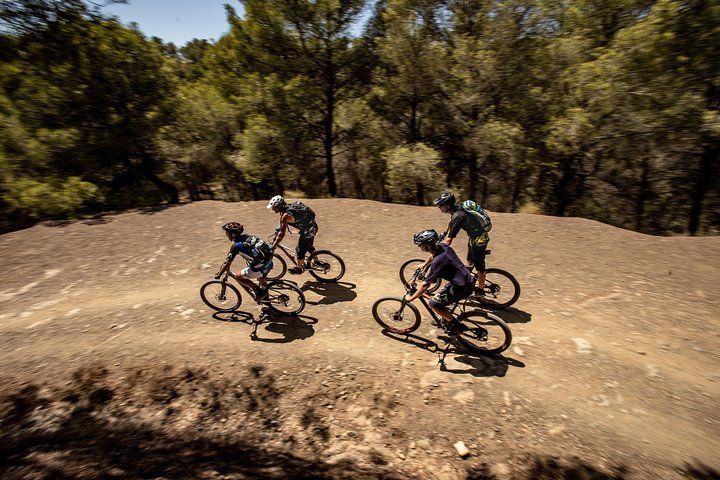
The ideal time for mountain biking experiences in Malaga is September to May, when temperatures are mild and conditions are perfect for long rides. June to August can be too hot for daytime cycling, but early morning and late afternoon rides are still enjoyable.
Malaga’s diverse landscapes make it an incredible mountain biking destination, with trails ranging from coastal routes to rugged mountain paths. Whether you're looking for an easy self-guided biking tour of Setenil de las Bodegas or an intense MTB adventure, the region offers something for every skill level.
Top Mountain Biking Experiences in Malaga
This five-hour route from Olvera to Puerto Serrano follows a scenic, car-free trail along a former railway line. The ride takes you through rolling countryside, tunnels, and viaducts, offering stunning views of Andalusia’s landscapes.
This moderately challenging route takes you through forest trails, mountain climbs, and stunning coastal viewpoints. You'll also stop by the white village of Olias, known for its traditional Andalusian charm. The ride finishes in El Palo, a seaside district perfect for a post-ride break by the beach.
A scenic and varied ride combining urban and nature cycling. Pass by Malaga’s historic Botanical Gardens and cycle through Montes de Malaga Natural Park. Then, descend toward the Gibralfaro Castle and Port of Malaga, where you can enjoy sweeping views over the city and coastline.
Key Things To Know Before You Ride
If you prefer self-guided adventures, Malaga has plenty of bike rental shops offering E-MTBs and traditional bikes.
Rent an E-bike to tackle steep climbs with ease and cover longer distances without fatigue. If you prefer a more traditional ride on mixed terrain, rent a trekking bike for a balanced mix of comfort and performance.
Many trails have limited shade, so starting early or riding in the late afternoon is best in warmer months.
When Should Outdoor Adventurers Visit Malaga?
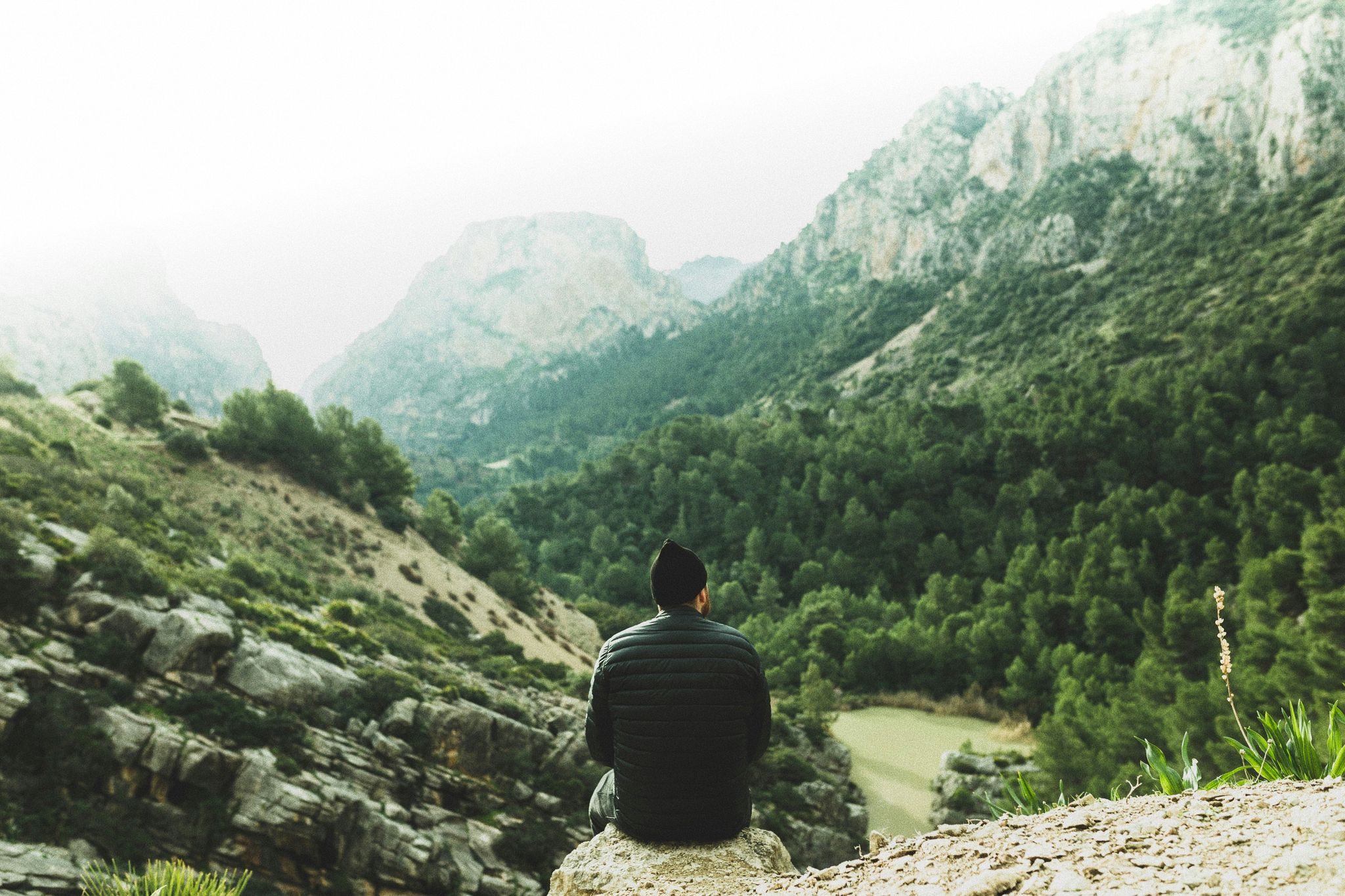
The best time to visit Malaga for outdoor activities depends on what kind of adventurer you are. To help you plan the perfect trip, here's a breakdown by activity:
Hikers & Mountain Bikers: March–May and September–November offer the best conditions for scenic trails like Caminito del Rey and Montes de Malaga.
Climbers: Autumn and spring provide ideal weather for scaling El Chorro’s limestone cliffs, avoiding the summer heat.
Off-Road & 4x4 Enthusiasts: September–May is best for exploring rugged mountain terrain without intense heat and dust.
Spring and autumn are the top seasons for outdoor exploration, while winter allows for lighter hikes and off-road adventures, though occasional rain may impact conditions.
Best Time To Visit Malaga for Budget Trips
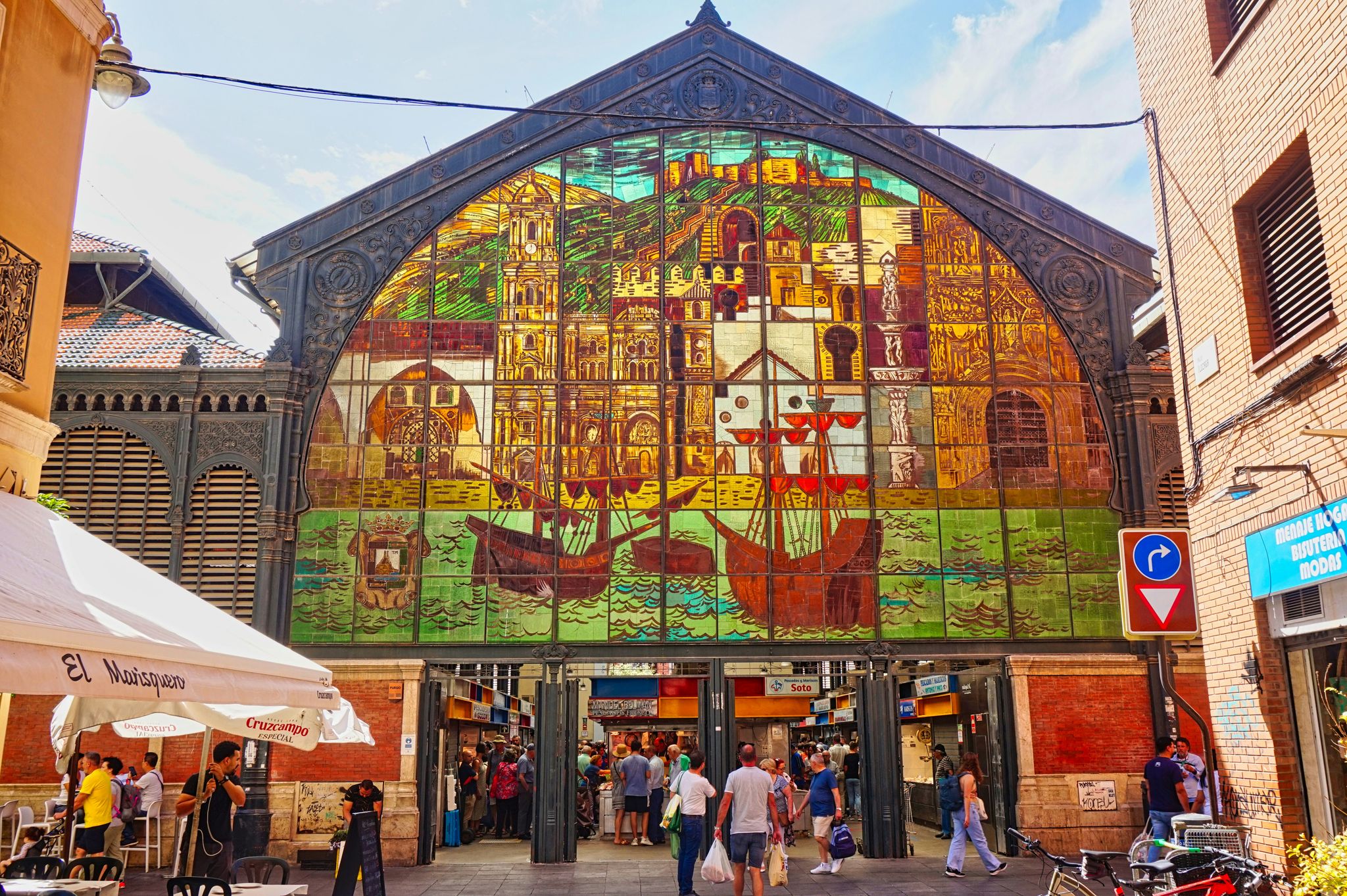
Malaga is one of Spain’s most budget-friendly coastal cities, but prices for flights, hotels, and activities vary throughout the year. To save the most, it’s best to visit in the off-season (winter) or during the shoulder seasons (early spring and late autumn), when costs are lower and crowds are thinner.
Here are the best times for affordable flights and accommodations in Malaga:
Cheapest months for flights: January, February, and November, when demand is low.
Hotel prices are lowest in winter, except for Christmas and New Year’s Eve, when rates briefly increase.
Best Time To Visit Malaga for Free Attractions & Discounted Museums
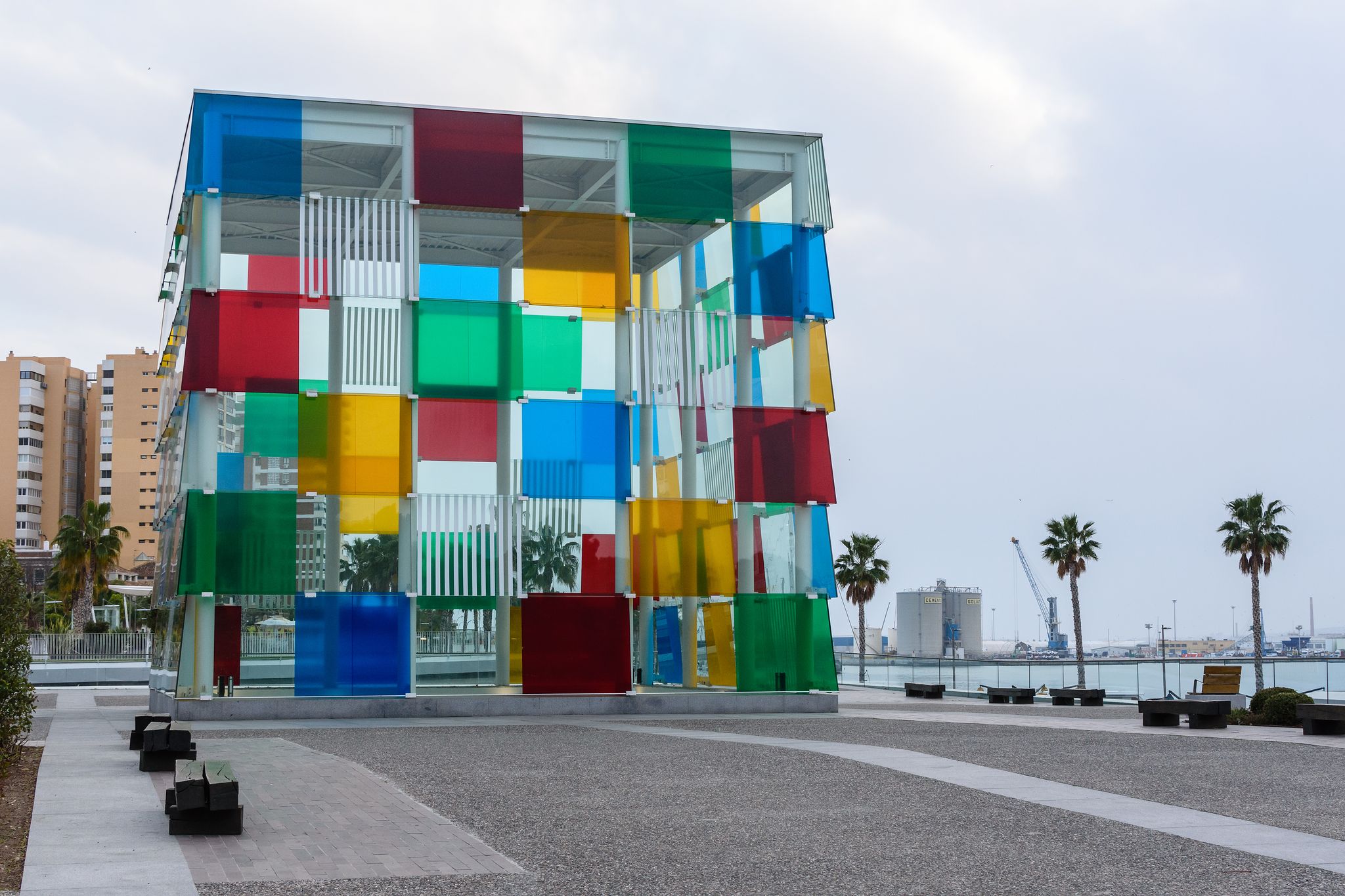
Many of Malaga’s top attractions offer free entry or discounts on specific days, making it easier to explore on a budget. Planning your visit around Malaga’s free museum entry days can save you money while allowing you to explore the city’s cultural treasures.
Sundays Afternoons – Enjoy free entry to major sites like the Picasso Museum, Alcazaba, Gibralfaro Castle, and Carmen Thyssen Museum. Arrive early to avoid long queues.
September 27 (World Tourism Day) – Many museums waive entrance fees for this international event, making it an ideal time for budget travelers.
If you're visiting Malaga in winter or early spring, plan your museum visits around these free-entry days to explore more without extra costs. Additionally, some museums, including the Contemporary Art Center Malaga (CAC Malaga), Municipal Heritage Museum (MUPAM), and Jorge Rando Museum, offer free entry year-round.
For more budget-friendly activities, visit Malaga Cathedral for outdoor views, relax at the city’s beaches, or explore the street art in the Soho district—all completely free.
When Should Budget Travelers Visit Malaga?
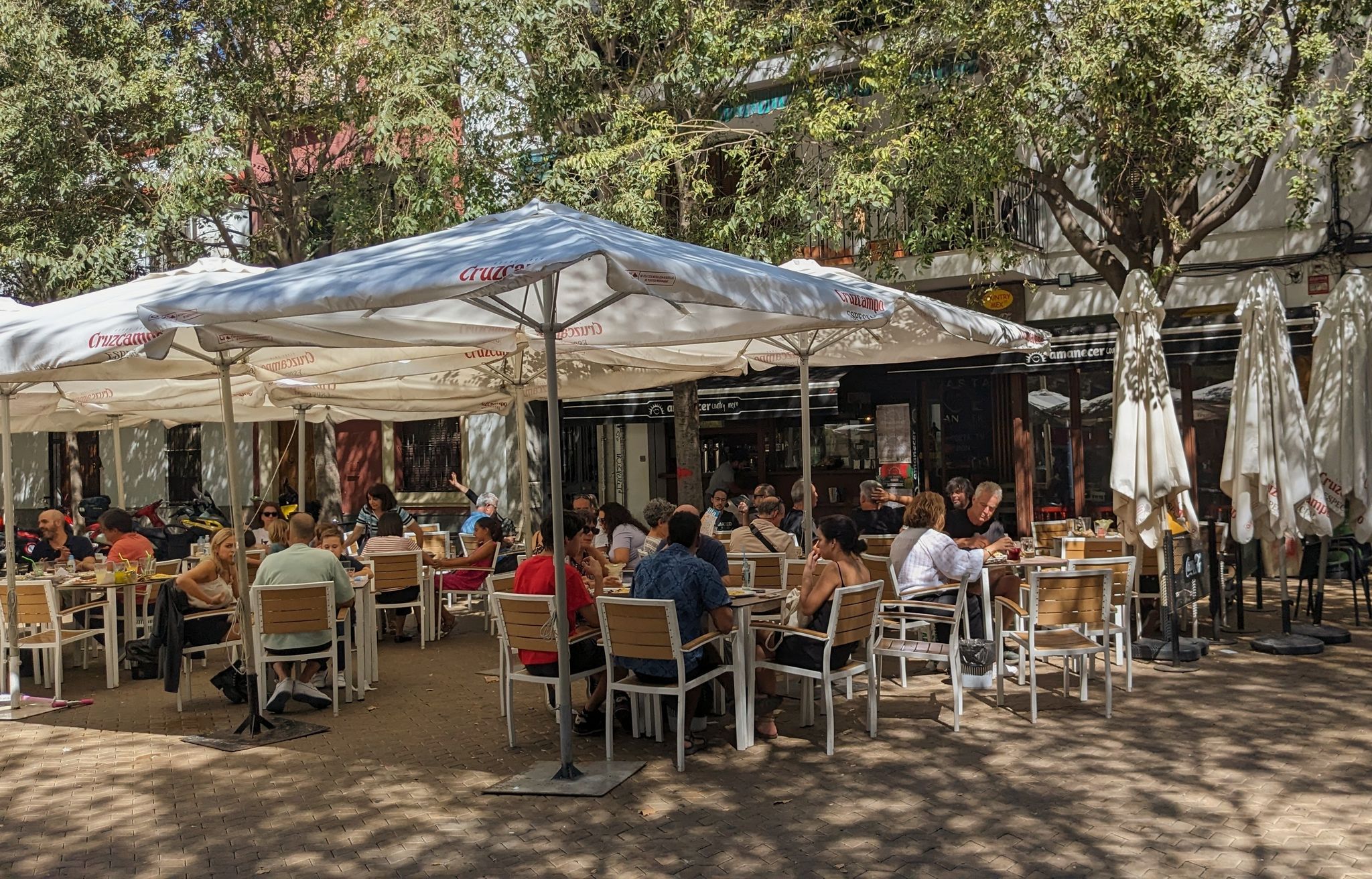
If you're looking for the cheapest time to visit Malaga, January, February, and November are the best months, offering low hotel rates, cheap flights, and fewer tourists. Spring (March–April) is also a good option, with affordable prices before peak season begins.
By visiting during the off-season and taking advantage of free attractions, you can enjoy Malaga on a budget without missing out on its best experiences. Many museums in Malaga waive entrance fees on special occasions and Sunday afternoons, allowing you to explore the city's rich cultural heritage without spending a dime.
Best Time To Visit Malaga: Final Thoughts
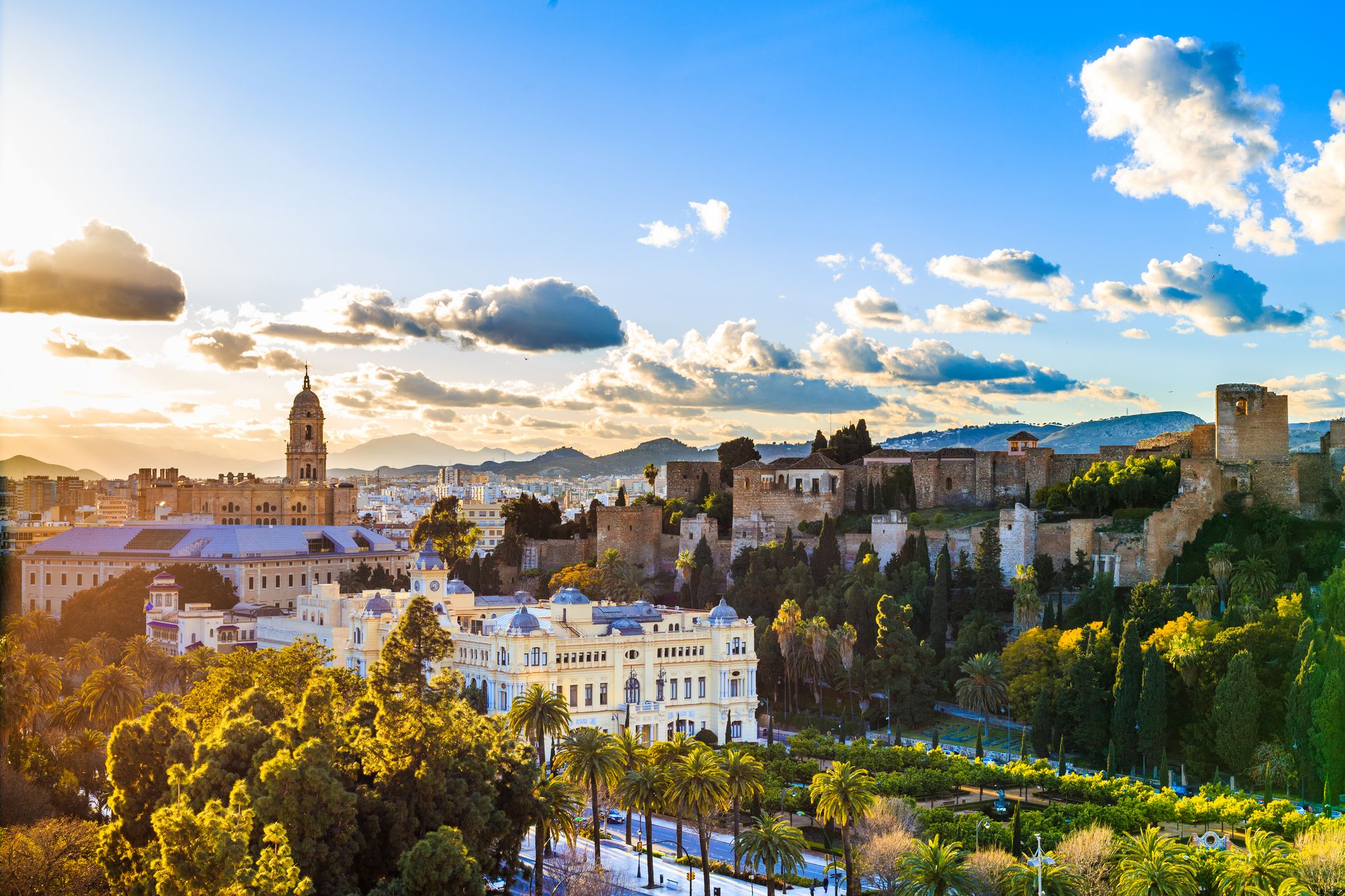
The best time to visit Malaga depends on your travel style. Whether you're here for beaches, outdoor adventures, cultural experiences, or a budget-friendly trip, choosing the right season ensures the best experience.
Beach lovers should visit late June to early September for warm seas and beach clubs, or May and October for fewer crowds.
Adventurers will find the best hiking, kayaking, and outdoor activities in spring (March–May) and autumn (September–November) when the weather is mild.
Cultural travelers can enjoy festivals, museums, and historic sites in March–May or September–November, avoiding summer heat and crowds.
Budget travelers should visit in winter (December–February) or early spring (March–April) for lower prices on flights and accommodations.
If you have a mix of travel styles, here’s when to visit Malaga:
Relaxed culture seekers – May or September offers warm weather and cultural experiences.
Offbeat explorers – Spring and autumn are ideal for history, hidden gems, and outdoor activities.
Budget-friendly beach lovers – May, early June, or September balances affordability and warm beaches.
Low-cost adventurers – Early spring or autumn is the best time to visit Malaga for outdoor fun without peak-season prices.
No matter when you visit, Malaga offers sunshine, history, and exciting experiences all year round. For more insights to help plan your trip, check out these helpful resources:
